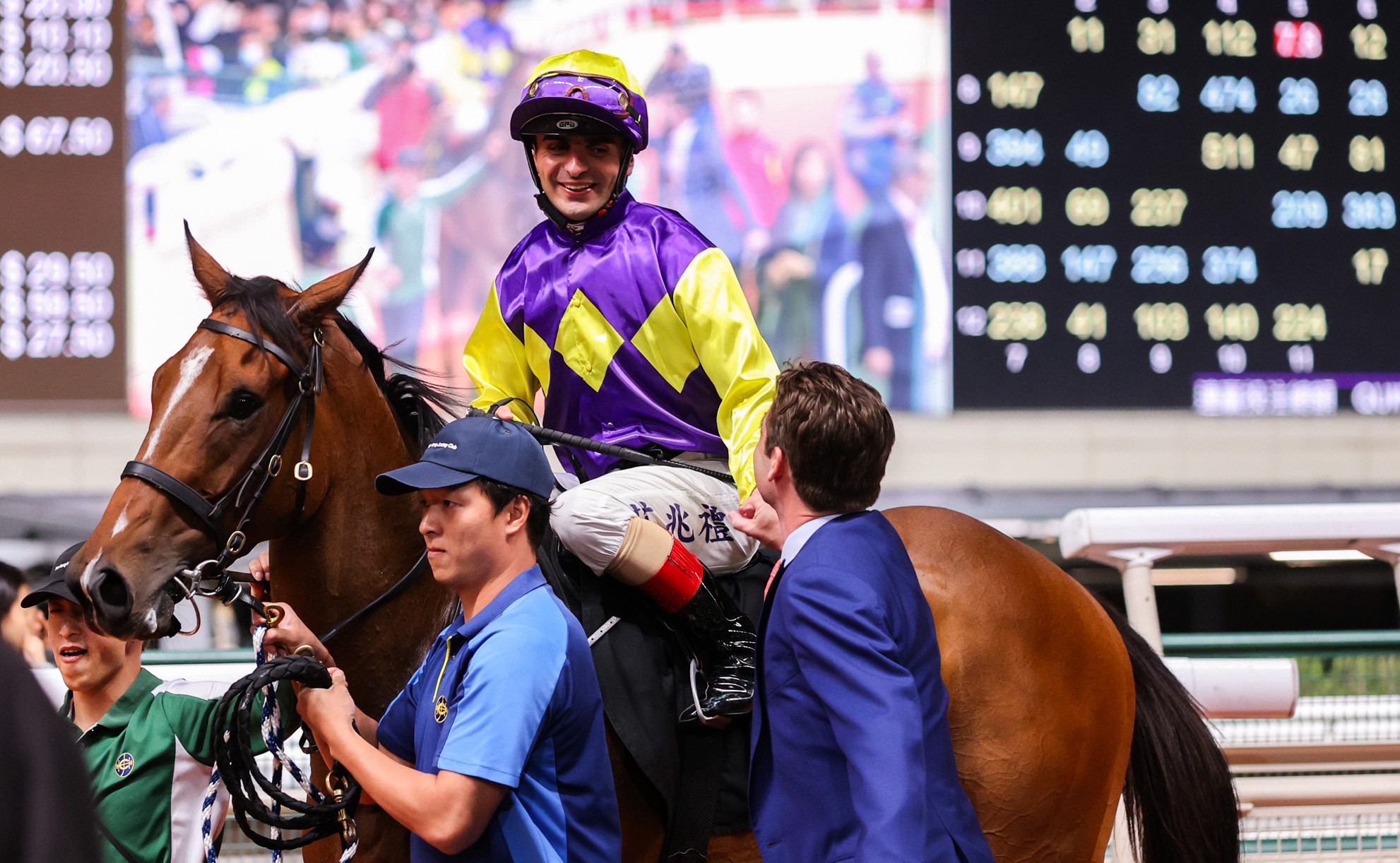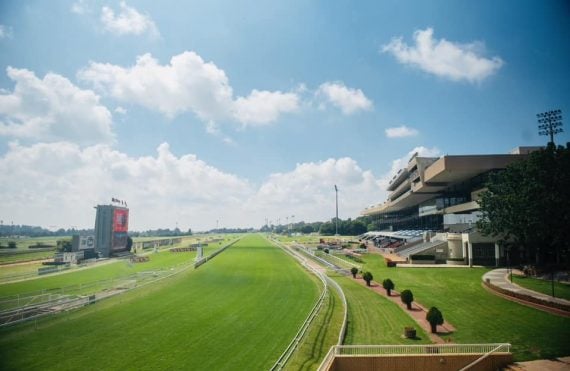Rupert Langerman wrote in the Cape Times of Monday, 28 August 1989 that Charles Faull “has endeavoured to drag South African racing, kicking and screaming, from 19th into 20th century thinking.’’ Kick and scream it has, but last week racing finally took a first tentative step when Gold Circle announced that it will implement barrier trials from November.
As we discuss the implications, his phone goes off like a pinball machine with all the messages of ‘Congratulations’, ‘well done’ and ‘finally’ that are streaming in not only from across the country, but across the world. Champion jockeys, champion trainers, friends, family and racing enthusiasts.
“It’s astounding,” marvels Charles. “And it just shows you how many people out there feel the same way. But it took someone to take the lead and huge credit has to go to Paul Lafferty. What he did is huge. In the 1950’s, Tommy Smith (father of Gai Waterhouse) was the first to pioneer barrier trials in Australia. Paul has just become our Tommy Smith.”
Charles was recently honoured with a lifetime achievement award for his services to racing. The irony is that Charles does not feel he has achieved his lifetime’s goal which is to improve local racing’s status quo and safeguard its future.
Harbinger
 There is an internet meme of a guy wearing a T-shirt with the slogan, “I’m a bomb technician. If you see me running, try to keep up.” It could have been designed for Charles. Only in his case, he has been running for years, but few others have realised the urgency.
There is an internet meme of a guy wearing a T-shirt with the slogan, “I’m a bomb technician. If you see me running, try to keep up.” It could have been designed for Charles. Only in his case, he has been running for years, but few others have realised the urgency.
For more than 40 years, Charles has been campaigning for South African racing to act with more integrity and transparency and put the customer at the centre of our business. Failure to do so, he warned, would result in long term damage to the sport. History has proved him to be correct – not because he has a crystal ball, but because he is a student of human behaviour, a student of markets and a student of marketing. Charles graduated from University with a Cum Laude in marketing. “To my father’s horror, I chose racing,” he shrugs.
Charles’ father was the legendary racing vet George Faull and despite George’s best efforts, Charles became interested in racing as a student, thanks to a romantic interest who took the Jackpot. Charles became intrigued by the intricacies of form study, handicapping and the WFA scale, with one of his earliest big wins on Court Day in the 1970 Rothmans July. “In the run up to the July, Court Day ran a 9 furlong handicap against that year’s Garden Province winner. He gave her 24lbs and finished 2 lengths off. Based on that run, I backed him in the July. He won, beating Chichester by a length.”
Perception change
“In those days, there was opacity both before and after the race. The race card came out on a Tuesday or Wednesday and along with the Duff Guide, you would spend the week studying and pick your horses for the Jackpot. You went on the form you had and would succeed or fail based on your calculations. In those days it was unthinkable to have unraced horses in the Jackpot, because they didn’t have any maiden races in the Jackpot. There was no access to the results other than what was put up on the scoreboard. If you weren’t there, you had to wait for the newspaper the following day.”
“In the early 90’s, with the advent of televised post-race interviews, we started seeing trainers and owners boasting to the public about having access to inside information. If the public had been suspicious before, conspiracy theories now skyrocketed. The opacity after the race was gone. Now, of course, we have the internet and social media as well.”
“You simply cannot market something before the product is functioning correctly. As David Ogilvy said, “It is flagrantly dishonest for an advertising agent to urge consumers to buy a product which he would not allow his own wife to buy.” The message being if it is not something you trust and would be comfortable buying into, then you have no right trying to sell it to someone else. It is not only unethical, it is bad business practice as selling someone a flawed product is the best way to ensure they never use your business again.”
Rage against the machine
At the age of 25 Charles became a member of the Jockey Club. “There was a time when I was the youngest member of the Jockey Club in the world. At that time, the Jockey Club was considered the most elite club on earth. I was proposed by Des Scott and seconded by Abe Bloomberg. I was so proud. I went to that first meeting and stood up, knees shaking, with the wealth of the nation in that room. I said I’d like to raise a point that the Jockey Club was the body entrusted with upholding the ethics and integrity of the sport, that withholding pertinent information from our customers was exploitative and tantamount to insider trading. Moreover, it was happening on an on-going basis and often involving horses belonging members of the Jockey Club itself.”
The response? “Even if we locked the gates, the monkeys would still climb over,” says Charles with disgust. Charles then read reports in the Thoroughbred Times about time trials in America. Other countries followed suit. And he has been campaigning for local racing to adopt similar policies ever since.
“This way of thinking has become so entrenched that people think it is normal!” he exclaims. “There are a lot of people with vested interests and campaigning for change is exhausting, but with each round, you get better and you get better informed, but I don’t know how many more rounds I will be around for – or even if there will be still be a sport to fight for,” he adds darkly.
Managing Information
“Racing is built on the dreams of the super-rich. For the punter, it’s a chance to be skilful and pit your knowledge – of handicapping, studying form and the WFA scale – against the Tote and your fellow punters and the prospect of betting a little money to win a lot.”
“You must understand that racing is a speculative business such as the stock market, so you’ve got to be so careful with trust and how you manage information. Unfortunately, when you invite people to bet into a pool – and advertising racing in high circulation daily newspapers is an invitation to bet – it is imperative that you provide every shred of relevant information to your customer to ensure there are no information blind spots. When we take money from people to fund racing and use that money to pay dividends to shareholders while failing to provide relevant price sensitive information, it is criminal behaviour. It makes us complicit before and an accessory after the fact.”
“Every single time someone loses a bet due to a lack of information and we see connections going on TV and publicising the fact that they had access to information that the punter did not (‘the dogs were barking’, ‘the word was out’, etc), it’s a slap in the face of our customer and compounds the perception in the minds of the public that racing is dishonest. No wonder people are leaving in their droves.”
“Punters, with their thousands of little bets, provide our stakes, pay for the upkeep of our tracks and for the salaries of all our staff. Being able to run a horse in order to compete for a share of a stake is a privilege, not a right and no-one should be allowed to run a horse for a stake they have not helped earn,” he says earnestly.
“For many years, racing was the only bet in town and somehow it managed to continue in spite of itself. What we are seeing now is the combination of the effects of the economy with the cumulative effect of years of what I can only describe as customer abuse.”
Entrenched
So last week’s decision is a huge victory, and the result of many hours, days, months and years of tireless campaigning. It has fired a light in Charles’ eyes and added some much needed motivation and energy.
He chats animatedly about the huge task ahead to make sure everything is done correctly to achieve the positive effects that properly run trials can bring for the greater good of racing. “Trials help everyone. A champion trainer told me that he takes exception to having a microphone stuck in his face and asked how a first timer will run. Without the horse ever having had a trial under race conditions, he simply has no idea what the horse is going to do first time out – because of the stage fright factor that you cannot get from work at home.”
“In the Cape, the situation has been exacerbated by having Durbanville out of commission and grass gallops severely limited. At Kenilworth, Saturday, 9 September 2017, one of our top yards sent out four first timers. When I discussed it with the trainer beforehand, he said these horses had never seen the grass, so he had no way of gauging what the horses might or might not do. But, due to the lack of facilities and opportunities, he was having to run the horses as complete unknown entities in order to get them going. Everybody loses.”
“Trials would remove a lot of the secrecy and guess work for the trainer, the owner as well as the punter. However, it is not a silver bullet and is only one tiny step in the right direction. Only when we are treating everyone equally and can look our coalface customer in the eye and assure him he can put his money down, safe in the knowledge that he has no information blind spots and has access to the same information as everybody else, then we have a working business. Then, and only then, can we start to think about advertising our product. Otherwise we merely continue shooting ourselves in the foot.”
Herculean
Years of apathy and slow and inexorable back sliding mean the effort required to arrest the slide, never mind turn things around, is herculean now compared to what it would have been had we started when Charles first sounded the warning, but as the old expression goes, the best time to plant a tree is 20 years ago. The second best time is now.
Will it work? Only time will tell, but it is clear the status quo is not working and that a different strategy is needed. With racing being under enormous pressure, it seems crazy not to try a different approach.
To quote from Mr Langerman again, ‘Racing in this country can be divided into two eras: pre-Charles Faull and post-Charles Faull. No-one acquainted with his contribution to the industry can doubt this.’










